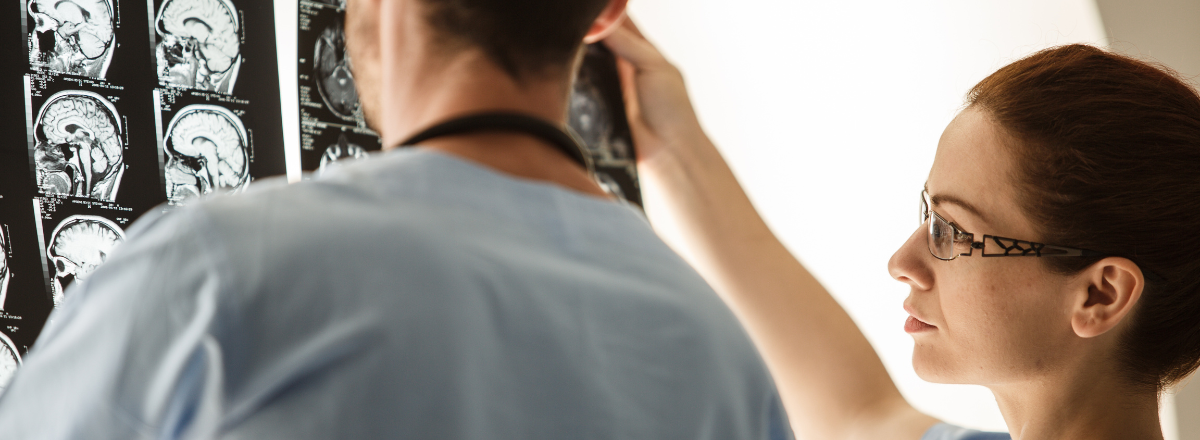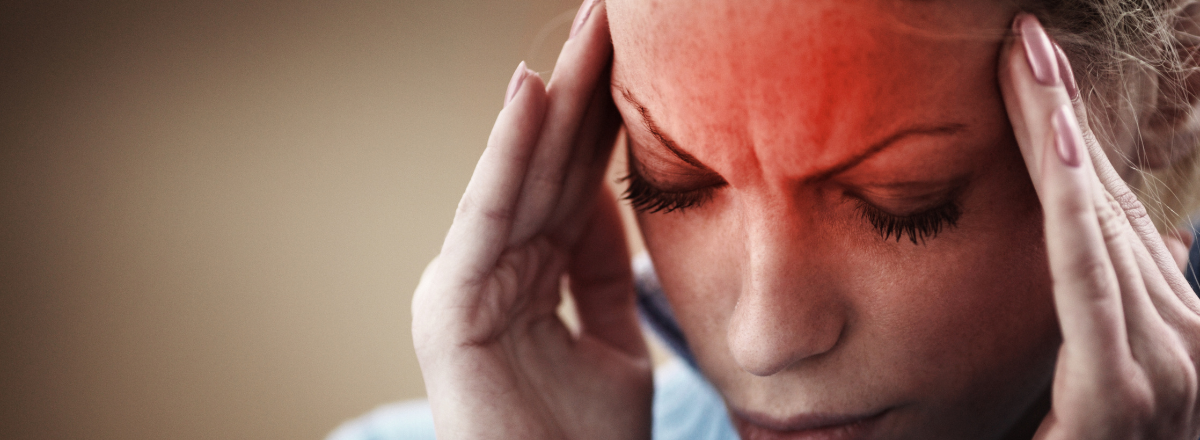We read and talk a lot about the warning signs of common cancers, such as breast cancer, prostate cancer and bowel cancer – and rightly so. But this month, for Brain Tumour Awareness Month, The Brain Tumour Research charity is shining a light on the signs and symptoms of brain tumours.
Although they’re relatively rare – over 12,000 people in the UK are diagnosed with a brain tumour each year – they are responsible for more deaths in children and adults under the age of 40 than any other cancer, says the charity.
‘Knowing the warning signs and symptoms of any cancer or illness play a hugely important role in someone not just getting the correct diagnosis, but also getting treated, hopefully,’ says ZoomDoc GP, Dr Jenny Ellenbogen.
So to make sure brain tumours are on your radar alongside other cancers and diseases, here’s everything you need to know about them – from the tell-tale signs to treatment options.
What exactly is a brain tumour?

A brain tumour is a growth of cells in the brain that multiplies in an abnormal, uncontrollable way.
The NHS describes it as ‘a growth of cells in the brain that multiplies in an abnormal, uncontrollable way.’ It’s not necessarily cancer as brain tumours can either be benign (non-cancerous) and less likely to grow back after treatment or malignant (cancerous), which are more likely to grow back after treatment.
What are the key symptoms of brain tumours?

Difficulty swallowing, facial weakness or numbness, or double vision is a symptom of a tumor in the brain stem.
Not every brain tumour will have the same set of symptoms but the NHS says common ones include:
- headaches
- seizures (fits)
- persistently feeling sick (nausea), being sick (vomiting) and drowsiness
- mental or behavioural changes, such as memory problems or changes in personality
- progressive weakness or paralysis on one side of the body
- vision or speech problems
There can also be some unusual symptoms associated with brain tumours, explains Dr Karen Noble, Director of Policy, Research and Innovation at Brain Tumour Research:
‘Brain tumours near the pituitary gland can cause some of the most surprising symptoms, such as extreme changes to personality, weight and physical size, or delays to puberty.’
Is my headache actually a brain tumour?
Headaches caused by brain tumours are caused by pressure being created in the skull because of the tumour. They tend to be severe headaches that don’t lessen or disappear with paracetamol or rest.
The NHS says to see a GP if your headache feels different to the usual headaches you get, or if a headache gets worse.
‘This doesn’t necessarily mean it’s a brain tumour but you should get a bad headache checked by your GP, especially if it doesn’t respond to painkillers or if it’s accompanied by other worrying or unusual symptoms,’ says ZoomDoc’s Dr Jenny.
To rule out a brain tumour, your GP will refer you to see a specialist (neurologist) who may recommend an MRI scan to take a closer look at the brain.
If your symptoms are limited to changes in vision and/or headaches, The Brain Tumour Charity recommends getting your eyes checked by an optician while you are waiting for your GP appointment.
Are brain tumours treatable?
Treatment is possible but it can be delayed if the brain tumour is misdiagnosed, which can happen quite often, says Dr Jenny. ‘There are over 120 different types of brain tumour and the symptoms are numerous and varied – depending on where in the brain the tumour is positioned,’ she says.
Once it is diagnosed, your treatment options will depend on the type of tumour, its size, where it is in your brain and if it’s spread. Steroids, surgery and radiotherapy or chemotherapy can all be effective forms of treatment, depending on your tumour and your overall health, too.
For support with any stage of your treatment, contact The Brain Tumour Charity on 0808 800 0004.


